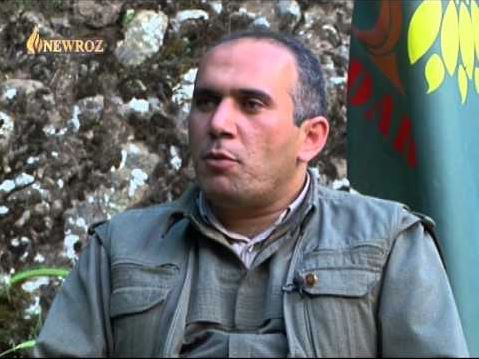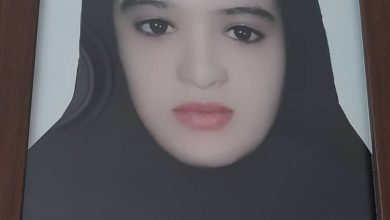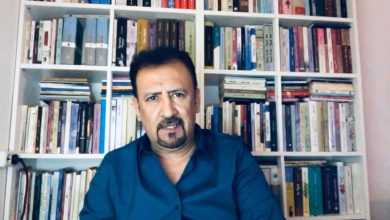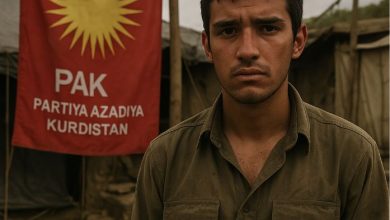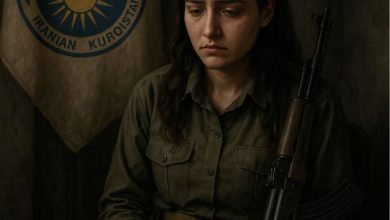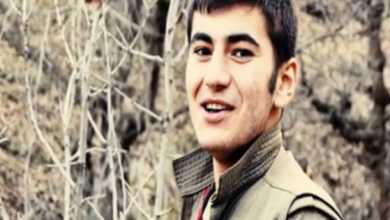Iranian Kurdistan Human Rights Watch has held conversations with a number of former members of the PKK group and stated some cases about the commanders of that group, including “Leila Afrin”, “Hassan Mahmoudi”, “Shoresh Bokan”, “Evin Sine”, “Dilxwaz Bingol”, “Zulkuf”, “Azad Horaz” and “Bozan Tekin”, “Ali Haidar Qaitan”, “Mazlum Abdi”…
Some other former members of the PKK / PJAK have been in contact with the Human Rights Watch of Iranian Kurdistan and provided more information.
The following conversation is about one of the commanders of that group named “Rizan Javid”, about whom we talked with one of the separated members of that group.
The full text of the conversation is as follows:
Introduce yourself first.
I am Sarkawt. I was a member of the PKK in Maku, and now I have a normal life.
Tell us about how Rezan Javid was attracted to the group, their behaviors, and other outstanding characteristics.
Rezan Javid is from Mahabad and is Sunni. He has two sisters and two brothers and was born in the suburbs of Mahabad in 1973, which coincides with 1352 on the Iranian calendar.
The formation of each city or region in Iranian Kurdistan is different, the geographical and political influences of the past still influence every single region. The ambitiousness, even describable as narcissism, and belief that those around him were worth less, in the minds of PJAK leaders who were from Mahabad originated from this style or personality formation.
The desire to go to Europe and life in the capitalist system was abundant among PJAK member leaders from Mahabad, including Fuad Beritan’s brother, who is currently on Iran International TV and…. In 2000, almost after Ocalan’s capture by Turkey, Iran allowed the people to protest, but eventually the West wanted to take advantage of the wave of protests, and the rest we all know, as they escalated violently.
Rezan had joined the group a year later, claiming to be a student, but what was seen in his temperament and thinking were religious subjects, just like his father, who was a clergyman.
He was an imitation of his father upon joining the group, and in his interviews, if you look, he tries to be an imitation of PKK leaders.
Tell us about his journey in the group.
In general, PKK leaders are people who have not seen or even approached the frontline and the war, a person who has not been in the war certainly does not have experience and is forced to follow the example of another person and imitate it.
In the years that I met Rezan, I may never have seen him carry a gun except for a ceremony in which this was necessary. He first worked in customs in a group of 5 people and then came to the PJAK press and returned to PJAK leadership after Xidr Xiringe was killed.
Mazdak and Briar were at the top of the table at that time. Rezan was conservative in communicating with anyone in power and causing problems for other members.
In 2007-2008, Rezan was working in an area where there were electrical engine equipment. At PJAK’s expense, he tried to build a water turbine to generate electricity. In fact, Rezan was responsible for turning the turbines on and off and repairing them. It is like giving the fate of a nation to a car mechanic who does not even know it! He did not even know the pieces, and delegated all the work he was supposed to do, and in general it can be said that those years were for spending on what we call in Kurdish “eating and sleeping.”
After the arrival of “Agir Shaho”, he also felt a sense of power. Mazdak went to Europe and Biryar was also in training. Rezan took his chance to rise in power.
In general, there has been factionalism, rationalism, and differences between languages and other differences in PJAK for many years. In this regard, if you are careful, Cemil Bayek gradually gives power to Kurmanji Kurds that speak in his own languages, not the Sorani Kurds.
There is still a faction of forming groups and power play in PJAK, and of course there is a sense of power-seeking among the members.
Rezan, with the help of Mazdak and a few other simple members, took part in the PJAK parliament, but eventually became Mazdak’s enemy because it was a matter of power.
Do you have a specific memory of him?
Yes, there are many memories, but let me tell you a specific one.
Once my radio was broken and I took it for repair and handed it over to Rezan, but I regretted it horribly taking the radio, because one of the wires was cut and the battery of the radio ended up plugged into a turbine. I had to spent the rest of the year without my radio.
Given that you have been with the PKK for some time, what is your analysis of the group’s approach and policies?
I saw him on TV after a long time, and saw Rezan had become a high-ranking member of Kodar. It is interesting that the leaders of PJAK have never stayed in any military organ or area of operation, and Rezan was one of them, which surprised me.
The last time I saw him again on TV and in the command of “YRK”, it seemed that he needed to lose weight and gain experience, and get out of this state of ordering and commanding, and enter the military field himself.
I also said above that imitations of PKK leaders, including Cemil Bayek and Murat Karayilan, were seen in Rezan.
Can you explain Rizan Javid’s views on women and women’s ideology in the PKK?
Rezan was not compatible with women either.
I was surprised that he had become the co-chairman of “Kodar” with “Zilan Tanya” because Zilan was “political” and maybe the reason for his resignation was the same women and Vizilan.
He had a wife, which he has beaten throughout their marriage. Seeing women as lesser beings was another characteristic of Rizan, as I explained above, the effects of growing up as the son of a clergyman, but also the tribal nature of the city of Rezan is part of this process that has shaped his personality.
Or maybe his hatred of women was due to the immoral behavior of his cousin in PJAK, Roj Mahabad, that slept around quite a lot.
In the PKK, women are used as the center of ideology and philosophy. Both in PJAK of that time and in Kodar, there are always female members and leaders of PKK placed there for the sole purpose of keeping up the appearances, and they have no political or military affiliation.
They may decide from within their respective council or organ, but in the end, the final vote will have to be cast by Cemil Bayek. PJAK has no will of its own, as there has always been distrust towards Iranian members of the groups. There have been quarrels among them as well, making it impossible to get along. For this reason, members of the PKK leadership now dominate the behavior and decisions of PJAK and Kodar and its leaders.

